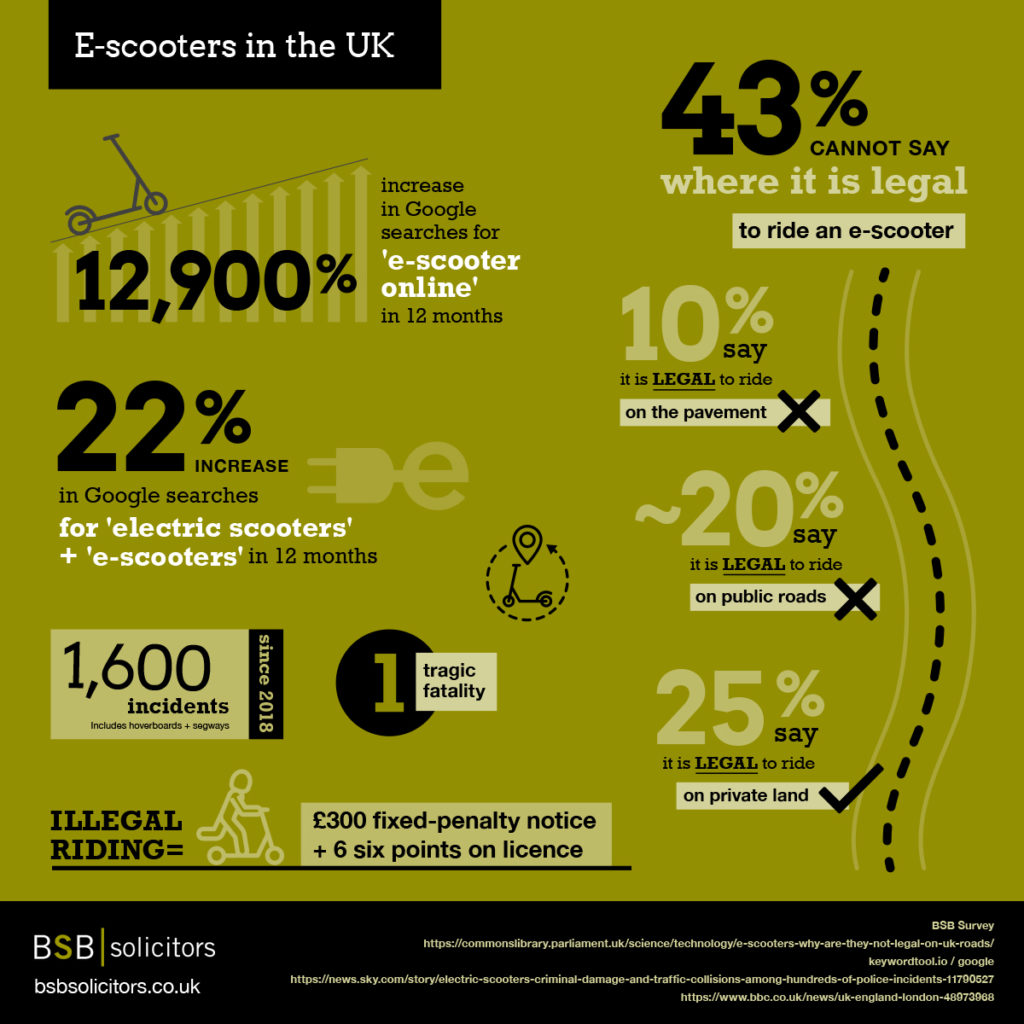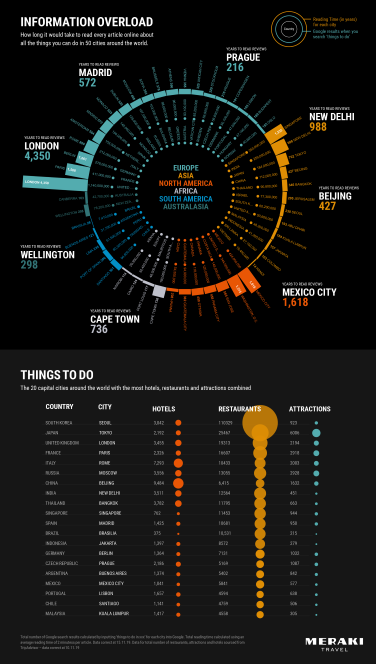December statistics and surveys from press releases on ResponseSource

(Image above courtesy of BSB Solicitors – see first story below for full details)
January is a time for looking both forward and back, so it’s fitting that the latest round-up of statistics and surveys from the ResponseSource Press Release Wire covers Christmas predictions, what employees and employers want (or need) to see change, and consumer opinions on sustainable living.
Only 357 shopping days ‘til Christmas…
Defence lawyers BSB Solicitors predicted e-scooters would be popular Christmas gifts in 2019, identifying a 22% rise in Google searches for the term in the last 12 months. It warned that only 25% of people realise that e-scooters can only be ridden legally on private land and that using them anywhere else puts riders at risk of fines, driving licence points or prosecution. Read the full story.
More festive dangers from CarTakeBack.com: after its 2018 study showed that one in five drivers thought it would be OK to drive after drinking if they felt unaffected, a CarTakeBack.com volunteer ate a supermarket-sourced Christmas meal to see how much alcohol it contained after cooking. The breathalyser reading came in at 0.25mg/L, not far off the limit of 0.35mg/L – meaning the meal with a single glass of wine could put her over the limit. Read the full story.
Benenden Health says 13% of UK workers have taken unapproved leave at Christmas (rising to 23% for Millennials and 31% for Generation Z), with 20% lying to their employers about the reasons, including personal health and care commitments. 15% of businesses confirmed they have experienced an increase in unapproved absence at Christmas. Read the full story.
More employment stats
Recruitment services provider Intelligent Resource says only 53% of businesses actively seek and welcome disabled candidates and 75% admit that disabled applicants face barriers when job hunting. Read the full story.
The Association of Professional Staffing Companies says its research suggests only half of businesses are actively preparing for the next round of IR35 legislation changes to off-payroll working, due to come into effect for the private sector in April 2020. Read the full story.
Alexander Mann Solutions says around 20% CVs contain some kind of discrepancy, with the most common being changes to employment timelines, reported by 73% of recruiters. Read the full story.
Capability Jane Recruitment found that 35% of women, and 30% of men, say that a lack of flexible working has negatively affected their career choices and progression. Health and wellbeing had an even bigger impact, with 43% citing this as the most significant factor on their career choices. Read the full story.
Back to Benenden Health for the last set of employment statistics – 42% of respondents have a health issue they have never revealed to their employer, and the younger the employee the more likely they are to keep quiet (63% of Generation Z compared to 18% of Baby Boomers). 29% of those surveyed said they would be willing to trade high pay for a better health and wellbeing package, but 85% of SMEs don’t offer employees anything beyond statutory healthcare provision. Read the full story.
Social media and consumer experience
Social commerce company Curalate says UK consumers are 79% more likely today to discover new products on social media compared to 2017, and 59% experience a positive impact after seeing customers’ pictures from a brand’s Instagram feed. However, impulse buying isn’t all it’s hyped up to be – Curalate says only 8% of consumers are ready to buy immediately after encountering a product on social media. Read the full story.
Meraki Travel has also spotted a rise in social shopping – saying that shoppers spend 16 hours a week researching purchases online (more time than they devote to socialising, cooking or watching TV). A third continue their research in bed, and all that investigation can be futile – 21% regularly return items they’ve bought online. It also found that 81% of people in the UK now research and book their holidays online and 36% take at least two weeks to do this. Read the full story.
For 30% of UK adults, a better digital customer experience is their main incentive for changing banks, according to Dell Technologies platform Boomi. 39% stay with a provider through force of habit and one in five hold an account with challenger banks like Monzo or Starling while keeping their ‘traditional’ bank account. Read the full story.

Sustainability
Vegan food producer MozzaRisella says 45% of meat eaters plan to reduce their meat consumption, and that cheese causes the biggest (metaphorical) headache for vegans, with 30% saying they can’t find an option to suit them. When it comes to where and how their food is produced, 39% of those surveyed say they are fully aware and 45% somewhat aware. Read the full story.
82% of people surveyed by clean tech company Vestemi said they’d be willing to turn their thermostat down to 19c to reduce emissions, although over half don’t currently realise the effect domestic heating has on carbon levels. Read the full story.
This is just a snapshot of some of the research-based stories you can find in the archive – or check out our past round-ups of similar findings.
Sometimes you don’t need a lot of detail about a survey or a statistic but if you do need expert insight to share with your readers, how do you evaluate data stories like these? Our tips:
–Determine the author of the report and interrogate their methodology. Is the sample representative of a population and is the sample size significant? A UK sample typically needs to be above 2,000 to be nationally representative. For more details see: https://saylordotorg.github.io/text_mastering-public-relations/s09-public-relations-research-the-.html
– If you plan to use data to make further calculations, this guide designed for MPs could be handy: https://researchbriefings.parliament.uk/ResearchBriefing/Summary/SN04944#fullreport
– Take any data story to the experts for insight or extra comment – the free ResponseSource Journalist Enquiry Service community can connect you with thousands of sources business, finance, technology, retail, health and any other sector. Try it today on https://responsesource.com/send



